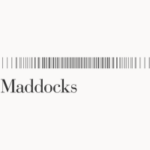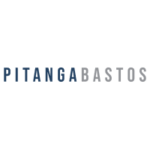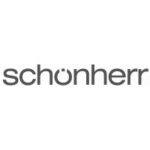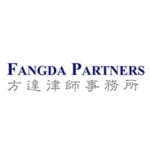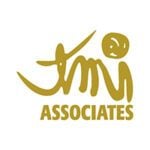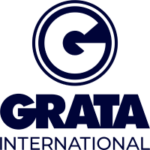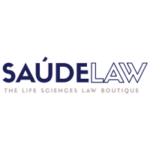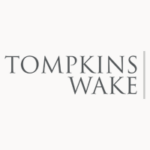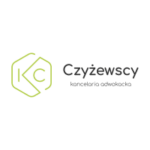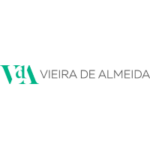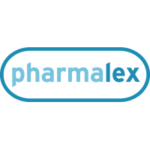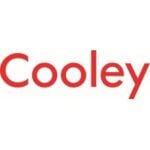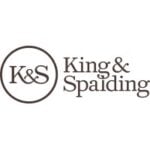-
What laws are used to regulate advertising on medicines in your jurisdiction?
The French Public Health Code sets out a certain number of rules concerning the advertising of health products, particularly medicinal products. They are both legal (Articles L. 5122-1 to L. 5122-16) and regulatory (Articles R. 5122-1 to R. 5122-17).
In France, Article L. 162-17-8 of the Social Security Code refers to the Charter for medical sales calls and Articles L. 121-1 to L. 122-7 of the Consumer Code refer to the advertising in general but also relate to medicines.
These rules were brought by various laws, decrees and order, such as:
- Law of 29 December 2011 on reinforcing the safety of medicines and health products;
- Law of 23 February 2017 ratifying the Order of 15 July 2016 simplifying the procedures implemented by The French National Agency for the Safety of Medicines and Health Products (‘ANSM’ or ‘the Agency’) and containing various provisions relating to health products.
- Decrees of 9 May 2012 relating to advertising for medicinal products and a Decree of 27 April 2012 relating to ANSM
- Order of 19 December 2012 on strengthening the security of the supply chain for medicinal products, supervising the sale of medicinal products over the internet and combating the falsification of medicinal products;
- Order of 19 December 2013 on the harmonisation of criminal and financial penalties relating to health products and the adaptation of the powers of the authorities and agents responsible for recording breaches.
-
Are there any self-regulatory or other codes of practice which apply to the advertising of medicines? a) If there are any such codes, to whom do they apply (companies, or healthcare professionals, for example)? b) What is the legal status of the self-regulatory codes?
‘Soft-law’ also applies to advertising of medicines.
a. If there are any such codes, to whom do they apply (companies, or healthcare professionals, for example)?
The ANSM has created a body of recommendations regarding the advertising of medicines directed at healthcare professionals and the general public. These rules are available on the ANSM website and are regularly updated.
The initial version of the Charter for medical sales calls was signed by the syndicate of pharmaceutical companies (‘LEEM’) and the Economic Committee for Medicines (‘CEPS’) in 2004 and amended in 2009. It was revised in October 2014 in order to incorporate the provisions of the Bertrand Act relating to the promotion of medicinal products and renamed ‘Charter of information by canvassing or prospecting aimed at promoting medicines’.
There are also ‘soft-law’ provisions on a supranational level, such as:
- The EFPIA (European Federation of Pharmaceutical Industries and Associations) Codes;
- The IFPMA Code (International Federation of Pharmaceutical Manufacturers and Associations);
- Commitments to good practice in relations between pharmaceutical companies and the press, adopted in July 2007.
Recommendations from the professional advertising regulatory authority also apply.
b. What is the legal status of the self-regulatory codes?
The ANSM recommendations and the previously mentioned Charter have acquired legal value through use. They can be compared to rules of ‘good practice’ (normative and enforceable) and are used by jurisdictions.
In a ruling handed down on 21 October 2019 (Cf. French State Council, Case n° 419996 / 419997), the French State Council confirmed that although the advertising recommendations issued by the ANSM had no legal effect in themselves, they nevertheless had an influence on the behaviour of marketing authorisation holders.
It concluded that these recommendations should be considered as likely to have an adverse effect on the company’s marketing the products in question, thus confirming their enforceability against these companies.
-
Is there a statutory or generally accepted definition of “advertising”? a) What does the definition cover? – does it include patient information leaflets, for example, catalogues, disease awareness campaigns or correspondence, for example? b) Does the definition apply equally to all target audiences?
The French Public Health Code, in its Article L.5122-1 defines ‘advertising’ of medicines as any form of information, including canvassing, prospecting or inducement, intended to promote the prescription, supply, sale or consumption of such medicines, with the exception of information provided, as part of their duties, by pharmacists managing an in-house pharmacy.
European Union law applies a positive definition of advertising. The assessment is made with regard to the purpose of the message regardless of who the sender is, and whether or not the manufacturer has control over the message (Cf. CJEU, Case C-421/07 of 2 April 2009, Damgaard). As long as the medium is voluntarily brought to the attention of the French public or professionals operating in France, advertising regulations apply.
a. What does the definition cover? – does it include patient information leaflets, for example, catalogues, disease awareness campaigns or correspondence, for example?
Therefore, the definition covers any information activity, by any means. This includes canvassing, prospecting or inducement through various means of communication. It can be whether internet websites or any Internet media such as Internet banners, sponsored commercial links, e-mailings or social networks. It can also occur through mobile media such as mobile applications, mobile Interstitials or mobile websites
To be considered medicine advertising, the activity must be characterised by its purpose. The information therefore must encourage prescribing, dispensing, sale or use of the product.
For example, an answer to a specific question about a particular product or information about a disease without direct or indirect reference to a health product or a price list without a promotional claim, etc is not considered to be a promotional activity.
The following are excluded from the definition of advertising (pursuant to articles L.5122-1 and L.5213-1 Public Health Code):
- Information provided by the pharmacists of an in-house pharmacy;
- Correspondence, accompanied where appropriate by any non-advertising document, required to answer a specific question about a particular medicinal product or medical device;
- Information relating to warnings about adverse reactions in the context of pharmacovigilance, as well as sales catalogues and price lists if they do not contain any information about the medicine;
- Information relating to human health or human diseases, provided that there is no reference, even indirect, to a medicine;
- Institutional information (scientific, technical or financial documents not intended to promote a medicinal product – limited reference to a medicinal product).
b. Does the definition apply equally to all target audiences?
The definition applies differently regarding the audience, since a dual system is applied depending on the target audience, whether they are healthcare professionals or general public.
General principles stated in the Public Health Code apply to all audiences
The advertising must not be misleading or undermine the protection of public health. It must present the medicinal product or product objectively and encourage its proper use.
Only medicinal products for which the marketing authorisation permits it or which benefit from a parallel import authorisation may be advertised. Promotion must comply with the provisions of the marketing authorisation and the therapeutic strategies recommended by the High Authority for Health (‘HAS’).
Advertising for a medicinal product is prohibited when this medicinal product is the subject of a reassessment of the risk-benefit balance. Health professionals are informed by the manufacturer of the medicinal product of the reassessment carried out under this paragraph. The information thus provided must comply with that issued by the ANSM.
The information contained in advertising for a medicinal product must comply with the information given in the summary of product characteristics and with the therapeutic strategies recommended HAS’.
When a medicinal product is the subject of a reassessment of the risk-benefit balance, the Director General of the French competent authority (ANSM) shall inform the manufacturer without delay. He shall also inform the operator without delay of the completion and outcome of the reassessment. If the reassessment results in a change of the marketing authorisation or registration requiring a change to the information contained in an advertisement which, prior to the reassessment, was endorsed, the operator must obtain a new endorsement in order to resume advertising.
In this case, the application for approval may be submitted outside the periods determined by decision of the Director General of the Agency and is deemed to have been accepted in the absence of a decision by the Director General within two months from the date of receipt of the application.
Advertising to healthcare professionals (‘HCP’s’)
All medicinal products can be advertised to HCP’s. Specific regulatory provisions are detailed in articles R. 5122-8 to R. 5122-17 of the Public Health Code.
Advertising to general public
A medicinal product may only be advertised to the general public if it is not subject to medical prescription, none of its various presentations is reimbursable by compulsory health insurance schemes and the marketing authorisation or registration does not contain any prohibition or restrictions on advertising to the general public due to a possible risk to public health, in particular where the medicinal product is not suitable for use without the intervention of a doctor for the diagnosis, initiation or monitoring of treatment.
Advertising to the public of a medicinal product for which a marketing authorisation has been granted may be prohibited or restricted, by decision of the Director General of the ANSM.
By way of derogation, advertising campaigns for products presented as suppressing the desire to smoke or reducing addiction to tobacco are considered to be medicinal products or for vaccines subject to medical prescription or reimbursable may be aimed at the public.
Non-institutional advertising campaigns aimed at the public for the vaccines are only authorised if the following conditions are met:
- They appear on a list of vaccines drawn up for public health reasons by order of the Minister for Health after obtaining the opinion of the HAS;
- The content of these advertising campaigns complies with the opinion of the HAS and is accompanied, in a clearly identified manner, by the minimum compulsory information determined by this body. This information is reproduced in full, is easily audible and legible, depending on the medium of the advertising message concerned, is not cross-referenced and complies with the characteristics defined by order of the Minister for Health.
Advertising of a medicinal product to the public must be accompanied by a message of caution and a reference to the need to consult a doctor if symptoms persist.
Specific regulatory provisions are detailed in articles R. 5122-3 to R. 5122-7 of the Public Health Code.
-
Are press releases regarding medicines allowed in your jurisdictions, and if so what are the restrictions on these (bearing in mind the target audience)?
Press releases regarding medicines are allowed in France, if they comply with rules relating to advertising. Hence, they must have received the prior approval of the Agency.
Press releases can be qualified as institutional when they do not constitute advertising. In this case, they are not subject to authorisation by the ANSM and can appear on pharmaceutical companies’ websites.
The Charter for the communication and promotion of health products (medicinal products and medical devices) on the Internet and e-media enacted by the ANSM states that dossiers and press releases presenting medicinal products may only be placed online if real restrictions on access are put in place, in order to ensure that they are accessible only to journalists or editorial managers (e.g. allocation of an access code reserved for these professionals).
Institutional press files and releases are authorised for free access.
-
Are there any processes prescribed (whether by law or Codes of Practice) relating to the approval of advertising of medicines within companies?
The company marketing a medicinal product shall set up an advertising department, under the control of the pharmacist responsible, which shall ensure compliance, and particularly the scientific validity of the information disseminated.
The company keeps a copy of each advertisement it issues for a period of three years from the date on which it was last disseminated and makes this copy available to the ANSM, together with a form indicating the addressees, the method of dissemination and the date on which it was first disseminated.
Where the advertising is aimed at the general public, when the application for approval is submitted, the applicant assigns an internal reference number to each of the advertising media, in accordance with the rules defined by a decision of the Director General of the ANSM. Advertising disseminated to the public must mention this number, except in the case of advertising on a radio broadcasting medium.
-
Do companies have to have material approved by regulatory bodies prior to release?
Pursuant the Public Health Code, advertising medicines to the general public that are not subject to medical prescription and campaigns for vaccinations to the general public, are subject to prior authorisation from the ANSM, referred to as an advertising approval.
The promotion of medicines to healthcare professionals authorised to prescribe, dispense, or use such products in their practice also requires prior approval from the Agency.
Approvals are issued for a period which may not exceed the duration of the marketing authorisation of the medicines in question. Should a pharmaceutical company fail to comply with these provisions, the approvals may be suspended in an emergency procedure or withdrawn by reasoned decision of the Agency, following Article L. 5122-9 of the Public Health Code.
However, applications for advertising visas can only be submitted during the periods defined in the Calendar of periods for submitting applications. An online form is created for each submission period. The link to each form is posted on the ANSM website a few days before the start of a submission period. Each year, the Director General of the Agency sets the timetable for the submission of applications for advertising approval for medicinal products. No applications may be submitted outside these periods.
The Agency ensures the safety of the promotional message and the consistency with:
- The assessments and recommendations of the health authorities;
- Campaigns on proper use or public health programmes.
The control measures vary according to the target audience.
The ANSM bases its decisions on whether the advertising complies with the following three criteria (Article L. 5122-2 of the Public Health Code):
- Compliance with the provisions of the marketing authorisation (MA) and the therapeutic strategies recommended by the French National Authority for Health (HAS);
- An objective presentation of the medicinal product that promotes its proper use;
- Advertising must not be misleading or undermine public health protection.
In the event of failure to comply with general obligations described above, approval may be suspended in an emergency or withdrawn by reasoned decision of the Agency.
-
Is comparative advertising for medicines allowed and if so, what restrictions apply?
Consumer Code mentions comparative advertising in its Articles L. 122-1 to L. 122-7. They set up general rules that also applies to comparing medicines in advertising, such as:
- The obligation to advertise in a way that is not misleading or likely to mislead, while ensuring that it relates to goods or services that meet the same needs or have the same objective;
- The prohibition to put comparative ads on packaging, invoices, travel tickets, means of payment or tickets for shows or places open to the public;
- The prohibition on discrediting or denigrating other brands and causing confusion between the advertiser and a competitor or between brands.
Regarding promotion to the general public, the advertising of a medicinal product may not include any element which suggests that the effect of the medicinal product is guaranteed, that it has no adverse effects, or that it is superior or equal to that of another treatment or medicinal product.
Regarding promotion to HCP’s, the ANSM provides recommendations regarding comparative advertising, meaning the comparison of two or more medicines, regardless of the fact they are produced by the same pharmaceutical company or not.
Generally speaking, these recommendations concern the presentation for advertising purposes of a comparison of medicines or other therapeutic methods:
Products compared
Comparative advertising may concern two or more products, under their brand name, when the brand name is identifiable, whether they are products in the same pharmacotherapeutic class or, more generally, products in different chemical classes but with the same therapeutic aim.
Non-medicinal therapy is not excluded from the scope of application.
Comparison criteria
The comparison must be as exhaustive as possible, without favouring exclusively the favourable elements. In order to be objective, the comparison must relate to essential, significant, relevant and verifiable characteristics.
At the very least, the criteria of efficacy and safety of use (elements of the benefit/risk ratio) should be included, but criteria of interest to the practitioner may also be included: dosage, duration of treatment, interactions, acceptability, etc.
Pharmacological properties with no validated clinical consequences will not be compared.
However, in the case of generics, price alone may be a criterion for comparison, whether the comparison concerns the originator or generics from the same group.
Comparison of treatment costs
Although a strict price comparison is possible under articles L.121-8 et seq. of the Consumer Code, a comparison of treatment costs is more relevant. It must be accompanied by the other comparison criteria in compliance with previous part (except for generic medicines).
Comparison of the cost of treatment may be considered a relevant characteristic for the prescriber if the price of the products being compared is published (in the Official Journal).
However, when prices are free (in the case of products not reimbursed by social security) or negotiated (in the case of products used exclusively in hospitals), the comparison of treatment costs is not relevant.
Types of studies which may be used
Marketing authorisation files and studies used to prepare the opinion of the Transparency Commission :
Studies, published or unpublished, from these two dossiers may be used in a comparative advertisement provided that they correspond to the therapeutic indication(s) validated by the marketing authorisation and, if applicable, to the conclusions of the Transparency Commission.
Other studies:
Other studies may be used, provided that they fall within the scope of the indications validated by the marketing authorisation and, where applicable, correspond to the conclusions of the Transparency Commission. In this case, they must have been published in a peer-reviewed journal.
Presentation of results
Presentation of tables, figures and diagrams:
The way in which the data is presented must provide clear, accurate, balanced and homogeneously treated information.
It may be either a faithful reproduction of the source document, or a faithful adaptation of all or part of this document.
When a table, graph or figure has been extracted from a study (whose references must be given), the number of patients and the type of analysis carried out must appear in the legend.
The scales must be identical for the products being compared, and their choice must not lead to a distortion in the representation of the results, in such a way as to unduly favour one product over another.
Expression of results:
The results must be accompanied by numerical and statistical data, enabling them to be verified, relevant and interpreted. They must be expressed in the same unit for all the products compared.
-
Is it possible to provide information on unauthorised medicines or unauthorised indications? Is it possible to provide information on unauthorised medicines or unauthorised indications during a scientific conference directed at healthcare professionals, or to send information to healthcare professionals?
Pursuant Article L. 5122-3 of the Public Health Code, only medicines with a market authorisation, homeopathic medicines registered with the ANSM or covered by a parallel import authorisation and traditional herbal medicines can appear in advertisements.
Regarding advertising to HCP’s, ANSM underlines in its recommendations that advertising cannot anticipate the results of studies that have not yet been submitted concerning possible changes to the marketing authorisation, or even those that are currently being examined by the marketing authorisation committee (properties, indications, dosage, etc.). This is particularly the case for studies that have not been validated in terms of indications, dosage or duration of treatment, and therefore cannot be advertised. Hence, unauthorised medicines or indications cannot be in advertisements, they can only constitute informational supports, not intended to promote the products.
With regard to congresses, ANSM’s dedicated recommendation on advertising to HCPs states that, if, on the occasion of medical congresses with an independent scientific committee, or meetings organised under the aegis of learned societies or groups of experts mandated by them, reporting on the progress of research can be made by publishers of the medical press, in the interests of informing healthcare professionals. Special editions grouping together all or part of the work can be presented.
When these special editions present research data that has not been validated by the French authorities, they must include a warning on the front page.
The publication of these special editions, and their content, is the responsibility of the editors and their reading committee. These publications may contain advertisements, with the exception of advertisements for products mentioned in these documents and for which information not covered by marketing authorisation is provided. The distribution of these special editions and the selection of healthcare professionals concerned by the subject is carried out exclusively by the publishers and is not repeated.
Where articles in these special editions provide scientific information on pharmaceutical products that is not covered by marketing authorisation, their use for promotional purposes is prohibited (in particular by medical sales representatives).
With regard to clinical trials, the ANSM states in its general recommendations on promotion to HCP’s that the presentation in an advertisement of an ongoing or future clinical trial involving one or more medicinal products, in particular: presentation of the objectives, protocol, demographic characteristics of patients or interim results, etc., is not acceptable because it does not provide prescribers with complete information and because it could, in certain cases, constitute an anticipation of results which are by nature incomplete and unvalidated. The studies that may be used are those published in a peer-reviewed journal, carried out under the conditions of use of the medicinal product as defined in the product’s marketing authorisation (MA) and other existing guidelines (opinion of the Transparency Commission, good practice recommendations).
Regarding early access mechanisms, any measures taken by the holder of the early access authorisation or an authorisation for compassionate access issued for a medicinal product to disseminate the authorisation, or any information relating to this authorisation, to the healthcare professionals concerned, must not constitute advertising. On the other hand, it is possible to advertise products with an early access authorisation when the indication in question has a marketing authorisation. These measures are subject to the prior opinion of the ANSM and the HAS. The draft measure is forwarded to the ANSM and the High Authority by any means capable of establishing a date of receipt. The opinions of the ANSM and the HAS are deemed to have been issued if no response is received within one month.
-
Please provide an overview of the rules that apply to advertising to the general public for prescription only medicines and over the counter medicines, and include the information that must or must not be included.
A medicinal product may only be advertised to the general public if it is not subject to medical prescription, none of its various presentations is reimbursable by compulsory health insurance schemes and the marketing authorisation or registration does not contain any prohibition or restrictions on advertising to the general public due to a possible risk to public health, in particular where the medicinal product is not suitable for use without the intervention of a doctor for the diagnosis, initiation or monitoring of treatment.
Advertising to the public of a medicinal product for which a marketing authorisation has been granted may be prohibited or restricted, by decision of the Director General of the ANSM.
By way of derogation, advertising campaigns for Products presented as suppressing the desire to smoke or reducing addiction to tobacco are considered to be medicinal products or for vaccines subject to medical prescription or reimbursable may be aimed at the public.
Non-institutional advertising campaigns aimed at the public for the vaccines are only authorised if the following conditions are met:
- They appear on a list of vaccines drawn up for public health reasons by order of the Minister for Health after obtaining the opinion of the HAS;
- The content of these advertising campaigns complies with the opinion of the HAS and is accompanied, in a clearly identified manner, by the minimum compulsory information determined by this body. This information is reproduced in full, is easily audible and legible, depending on the medium of the advertising message concerned, is not cross-referenced and complies with the characteristics defined by order of the Minister for Health.
Advertising of a medicinal product to the public must be accompanied by a message of caution and a reference to the need to consult a doctor if symptoms persist.
Specific regulatory provisions are detailed in articles R. 5122-3 to R. 5122-7 of the Public Health Code.
Where permitted, advertising of a medicinal product to the public :
- Is designed in such a way that the advertising nature of the message is obvious and the product is clearly identified as a medicinal product;
- Contains at least:
a) The name of the medicinal product, together with the common name ;
b) Information essential for the proper use of the medicinal product;
c) An express invitation to read carefully the instructions given in the package leaflet or on the outer packaging, as appropriate;
d) A message of caution, a reference to the advice of a pharmacist and, if symptoms persist, an invitation to consult a doctor;
e) In the case of a generic medicinal product, a reference to this status and, if the generic group to which the medicinal product belongs includes one or more reference medicinal products, a dedicated statement.
In the case of advertising on radio, the common name referred to is only required if the medicinal product contains no more than two active ingredients. Furthermore, only the mention that the medicinal product is generic is required.
Advertising of a medicinal product to the general public may not include any element which:
- Makes medical consultation or surgical intervention appear superfluous, in particular by offering a diagnosis or recommending treatment by mail order;
- Suggest that the effect of the medicinal product is guaranteed, that it has no adverse effects, or that it is superior or equal to that of another treatment or medicinal product;
- Suggest that a normal state of health can be improved by the use of the medicinal product;
- Suggest that a normal state of health may be affected if the medicinal product is not used; this prohibition does not apply to advertising campaigns notably for vaccines;
- Is aimed exclusively or mainly at children;
- Refers to a recommendation issued by scientists, health professionals or persons who, although they are neither scientists nor health professionals, may, by virtue of their reputation, encourage the consumption of the medicinal product concerned; or
- Assimilates the medicinal product to a foodstuff, cosmetic product or other consumer product;
- Suggest that the safety or efficacy of the medicinal product is due to the fact that it is a natural substance;
- Could lead, through a detailed description of symptoms, to a false self-diagnosis;
- Misuse, frightening or deceptive visual representations of changes in the human body due to disease or injury;
- Present the action of the medicinal product in the human body in an excessive or misleading manner;
- Refers to certificates of cure;
- Insist on the fact that the medicinal product has received marketing authorisation or has been registered;
- Contain offers of premiums, objects or products of any kind or direct or indirect material benefits of any kind.
A schedule of periods for submitting the visa applications is set for each year, by decision of the Director General of the ANSM published on the Agency’s website, before 1st November of the previous year. This schedule determines at least four periods per year, each lasting between one week and two months, during which applications must be submitted.
Visa applications are deemed to have been accepted in the absence of a decision by the Director General of the Agency within two months of the day following the end of the period during which they were submitted.
The visa is valid for two years.
When the application for approval is submitted, the applicant assigns an internal reference number to each of the advertising media, in accordance with the rules defined by a decision of the Director General of the ANSM.
Advertising distributed to the public must mention this number, except in the case of advertising on a radio broadcasting medium.
Withdrawal of approval is pronounced by the Director General of the ANSM after the beneficiary of the approval has been invited, by any means allowing proof of the date of receipt of this notice, to submit written or oral observations within a period set by the Director General, which may not be less than one month.
In urgent cases, the Director General of the Agency may suspend the visa for a maximum period of three months.
-
Are there any restrictions on interactions between patients or patient organisations and industry (e.g., consultation, sponsorship)? If so, please describe those briefly.
Apart from a few specific rules there is no specific framework in the Public Health Code for the relationship between pharmaceutical companies and patients or patient associations.
A Code issued by EFPIA sets out the general principles applicable to the relationship between pharmaceutical companies and patient associations. These principles have been incorporated into LEEM’s Professional Ethics Provisions.
Patient associations are among the persons with whom manufacturers must declare their links, in application of the transparency mechanism and must go through the system of declaring their benefits received from a pharmaceutical manufacturer.
While the Public Health Code does not prohibit, as a matter of principle, the relationship between pharmaceutical laboratories and patients, it does impose 3 prohibitions:
- No supply of medicines to patients by the industry;
- No promotion (for most medicines, i.e. those subject to prescription or reimbursed)
- No direct links as part of therapeutic education.
The LEEM’s professional ethics provisions stipulate rules to be applied regarding patient organisation.
- In general, the companies must respect the following principles
- The independence of patient organisations, in terms of policy choices, strategies and activities, must be ensured.
- All interactions between patient organisations and companies should be based on mutual respect, with the views and decisions of each partner having equal value.
- Relationships between companies and patient organisations should not have as their object or effect the promotion of a medicine.
- The objectives and scope of any collaboration must be transparent. Financial and non-financial support provided by companies should always be clearly identified.
- The companies welcome funding for patient organisations from multiple sources or stakeholders.
- Companies must not provide or offer meals (food and drinks) to health professionals, members of health organisations or representatives of patient representatives of Patient Associations, unless, in each case, the value of such meal of such meal does not exceed the monetary threshold set out below in these PDDs. Any hospitality offered to Healthcare Professionals, members of Healthcare health organisations or representatives of patients’ associations must be of a reasonable level and strictly limited to the main purpose of the Event. Generally, the hospitality provided must not exceed what these persons would would normally be prepared to pay for themselves. Direct or indirect gifts for the personal benefit of Healthcare Professionals, members of Healthcare Organisations or representatives of Patient Associations – such as associations – such as tickets to a sporting event or show, gifts of social courtesy – are prohibited. Social courtesy are prohibited. Providing or offering cash or personal services is also services is also prohibited. For these purposes, personal services refer to any type of service unrelated to the profession and conferring a personal benefit on its beneficiary.
- Donations and gifts (in any form whatsoever) to Healthcare Organisations and/or Patient Associations are only permitted if: (i) they are intended to make a contribution to healthcare, research or training; (ii) they are documented and recorded by the donor and (iii) they do not constitute an inducement to recommend and/or prescribe, purchase, supply, sell or administer any Medicines. Gifts and donations to individuals are not permitted. Where Companies provide financial support, significant indirect support and/or significant non-financial support to Patient Organisations, a written agreement should be established. This should indicate the amount of funding and its purpose (e.g. general financial support, support for a specific meeting or publication, etc.). It should also include a description of indirect support (e.g. the donation of the PR agency’s time and the nature of its involvement) and in-kind support.
- Companies should respect the editorial independence of Patient Organisations. At the request of Patients’ Associations, Companies may contribute to the scientific integrity, but without ever influencing the content, without prejudice to the influence the content, without prejudice to the correction of factual inaccuracies.
-
Which information must advertising directed at healthcare professionals contain, and which information is prohibited? For example, can companies provide information about clinical trials, or reprints of scientific journal articles?
Advertising to HCP’s
All medicinal products can be advertised to HCP’s. Specific regulatory provisions are detailed in articles R5122-8 to R5122-17 of the Public health code.
Advertising for a medicinal product to the healthcare professionals mentioned is tailored to the target audience. It specifies the date on which it was drawn up or last revised and includes at least the following information:
- The name of the medicinal product ;
- The name and address of the company exploiting the medicinal product;
- The pharmaceutical form of the medicinal product;
- The qualitative and quantitative composition in active ingredients, with the common name, and in constituents of the excipient, knowledge of which is necessary for the correct administration of the medicinal product;
- The marketing authorisation or registration numbers;
- The essential pharmacological properties with regard to the therapeutic indications;
- Therapeutic indications and contraindications;
- The method of administration and, if necessary, the route of administration;
- Dosage ;
- Undesirable effects;
- Special warnings and precautions for use;
- Drug and other interactions;
- The prescription and dispensing classification of the medicinal product as stated in the marketing authorisation;
- The maximum sale price to the public when such a price is set in application of the laws and regulations in force, accompanied, in this case, by the cost of daily treatment;
- The status of the medicinal product with regard to reimbursement by health insurance organisations or approval for public authorities;
- For a generic medicinal product, a reference to this status and, if the generic group to which the medicinal product belongs includes one or more reference medicinal products, the statement: ‘This medicinal product is a generic of’, followed by the name of the reference medicinal product(s), its strength and pharmaceutical form. In this case, the advertisement also includes the statement: ‘This medicinal product is registered in the generics register. When substituting a medicinal product, consult the list of excipients with a known effect on the packaging and the generics register for any warnings. ‘However, for advertising on a radio medium, only the mention that the product is generic is required.
The information contained in the advertisement must be accurate, up to date, verifiable and sufficiently complete to enable the recipient to form a personal opinion of the therapeutic value of the medicinal product.
Quotations, tables and other illustrations borrowed from medical journals or scientific works, which are used in advertising, must be faithfully reproduced and the exact source specified.
Advertising may not mention the position taken on a medicinal product by an administrative authority or an advisory body in a way likely to alter the meaning or objectivity of that position.
All written information must be perfectly legible.
When a medicinal product is subject to the restricted prescription conditions, it may only be advertised to prescribers authorised to draw up the prescription and to pharmacists practising in facilities likely to dispense the medicinal product.
The verbal presentation of a medicinal product is made by a person canvassing for medicines and is accompanied by the hand-delivery by the latter to the health professional:
- The summary of product characteristics;
- The information regarding pricing and reimbursement;
- The opinion issued by the Transparency Commission and most recently published.
When the medicinal product is the subject of several opinions due to an extension of the therapeutic indications, the notion of opinion is understood to mean all the opinions containing an assessment of the medical service rendered in each of the therapeutic indications of the medicinal product concerned.
These documents must be perfectly legible and show the date on which they were last drawn up or revised.
An application for an advertising approval for a medicinal product, must be made for any form of information, communicated to healthcare professionals authorised to prescribe, dispense or use this medicinal product in the exercise of their profession, in particular when :
- The presentation of the medicinal product
- Studies or surveys of these professionals;
- Scientific meetings or congresses attended by these professionals, in particular when these meetings or congresses are sponsored by a contribution to the financing of these meetings or congresses;
- Television programmes intended for these professionals, in particular when these programmes are sponsored under the conditions and within the limits set by the regulations relating to audiovisual communication.
A schedule of periods for submitting the visa applications is set for each year, by decision of the Director General of the ANSM published on the Agency’s website, before 1st November of the previous year. This schedule determines at least four periods per year, each lasting between one week and two months, during which applications must be submitted.
Visa applications are deemed to have been accepted in the absence of a decision by the Director General of the Agency within two months of the day following the end of the period during which they were submitted.
The visa is valid for two years.
When the application for approval is submitted, the applicant assigns an internal reference number to each of the advertising media, in accordance with the rules defined by a decision of the Director General of the ANSM. Advertising distributed to healthcare professionals must mention this number, except in the case of advertising on a radio broadcasting medium.
Withdrawal of the approval is decided by the Director General of the ANSM after the beneficiary of the approval has been invited, by any means capable of proving the date of receipt of this notice, to present its written or oral observations within a period set by the Director General, which may not be less than one month.
In urgent cases, the Director General of the Agency may suspend the visa for a maximum period of three months.
For reasons relating to the protection of public health, the suspension of the visa may be taken in the event of misuse, or drug dependence or abuse, of the medicinal product being advertised.
The Agency published a wide list of recommendations on its website.
Regarding studies, the studies that may be used are those published in a peer-reviewed journal, carried out under the conditions of use of the medicinal product as defined by the marketing authorisation (MA) for the product and other existing guidelines (opinion of the Transparency Commission, good practice recommendations).
Unpublished studies that may be used are:
- those taken from the marketing authorisation dossier and which comply with the wording of the marketing authorisation ;
- and, if applicable, those which were used to prepare the opinion of the Transparency Commission and which comply with the conclusions of the Transparency Commission.
These studies must be made available to any practitioner on request.
Studies ‘submitted’ or ‘accepted for publication’ cannot be accepted, nor can appendixes or any other contribution by an author that has not been validated by the journal’s editorial board.
Similarly, abstracts, posters, special issues and special issues produced as part of a contractual relationship between the publishing journal and the company concerned should be excluded.
Types of studies that can be used
Explanatory studies are the most likely to underpin efficacy or safety of use, particularly in comparative advertising. They must be prospective, controlled, randomised and, if possible (and depending on the case) conducted in a blinded fashion, with a sufficiently large number of subjects to ensure sufficient power.
Other methodologies (of the pragmatic type) or other study conditions (of the ‘naturalistic’ type) better suited to the evaluation of therapeutic interest and medical service rendered are relevant and may be adopted subject to precise justification.
The results of rigorous meta-analyses may be used.
In the case of publication of a study that has not been evaluated by the health authorities, particularly in the context of marketing authorisation, the ANSM may request the study analysis report before authorising its use in a promotional document.
Referencing of studies
Any precise claim must be documented by a complete bibliographic reference clearly indicated:
- Author(s) _Title of article. Name of journal in abbreviated form. Year of publication; volume (number):page start-page end.
or in the case of online publication
- DOI (Digital Object Identifier)
In the case of studies supporting a result, property or claim relating to the product, whatever the methodology (clinical, preclinical, pharmacokinetic study, etc.), the advertisement must specify whether the publication relates to a study selected during the assessment of the marketing authorisation or transparency dossier, and if necessary, the name or number of the study enabling the results presented in the SPC, EPAR or transparency commission opinion to be compared.
The date and number of the study must be specified when it comes from an unpublished document (marketing authorisation or transparency dossie.
-
May pharmaceutical companies offer gifts to healthcare professionals and are there any monetary limits?
In France, there is a law known as the ‘anti-gifts’ bill, which sets up an anti-bribery system. Its aim is to control and moralise relations between healthcare companies and healthcare professionals. These provisions are set out in articles L.1453-3 et seq. of the Public Health Code.
However, not only healthcare professionals are concerned, this law also applies to osteopaths, chiropractors and psychotherapists (not strictly considered as healthcare professionals in France); students (initial training) intending to enter one of the health professions or the profession of osteopath, chiropractor or psychotherapist; people undergoing continuing education or continuing professional development (CPD) in these fields; associations representing these professionals and students, including those involved in their training, in particular learned societies and national professional councils.
This law lays down strict rules governing relationships with prohibitions and possibilities, subject to conditions (drawing up of agreements with healthcare professionals, prior formalities).
Healthcare professionals are prohibited from receiving in cash or in kind from pharmaceutical companies in a direct or indirect way.
The following do not constitute advantages prohibited under the Anti-Gift Law:
- Remuneration, compensation and expenses for activities provided for in a contract of employment or a contract of practice, provided that the purpose of this contract is the direct and exclusive practice of one of the professions provided for in article 1453-4 of Public Health Code;
- Proceeds from the exploitation or transfer of intellectual property rights relating to a health product;
- Commercial advantages offered within the framework of agreements governed by the French Commercial Code and whose purpose is the purchase of goods or services;
- Benefits in cash or in kind relating to the exercise of the beneficiary’s profession and of negligible value, which may not exceed the amounts stipulated, by type of benefit and over a given period, by order of the ministers responsible for the economy and health.
The following benefits in kind or in cash may be offered by way of derogation and subject to the conditions of declaration or authorisation:
- Remuneration, compensation and out-of-pocket expenses for research, development of research, scientific evaluation, consultancy, provision of services or commercial promotion, provided that the remuneration is proportionate to the service rendered and that the compensation or out-of-pocket expenses do not exceed the costs actually borne by the persons referred to in article 1453-4;
- Donations and gifts, in cash or in kind, intended exclusively to finance research activities, the promotion of research or scientific evaluation;
- Donations and gifts intended for the persons mentioned in 3° of article L. 1453-4, with the exception of the national professional councils mentioned in article L. 4021-3 and associations whose purpose is unrelated to their professional activity;
- Hospitality offered, directly or indirectly, during events of an exclusively professional or scientific nature, or during events promoting the products or services mentioned in article 1453-5, provided that this hospitality is of a reasonable level, is strictly limited to the main purpose of the event and is not extended to persons other than those mentioned in article L. 1453-4 , with the exception of the students undergoing initial training mentioned in 2° of the same article L. 1453-4 and the student associations mentioned in 3° of the same article L. 1453-4 ;
- Financing or participating in the financing of professional training or continuing professional development.
There are five legal exceptions and some benefits are not covered by this scheme, as they are considered to be of negligible value, set out in the Order of August 7, 2020 setting the amounts below which benefits in kind or in cash are considered to be of negligible value pursuant Article L. 1453-6 of the Public Health Code:
- Impromptu meals and snacks: up to a limit of €30 (incl. VAT) twice a year;
- Books and periodicals: up to a limit of €30 (incl. VAT) per book or periodical and up to a total limit, including subscriptions, of €150 (incl. VAT) per calendar year;
- Office supplies: up to a maximum of €20 (incl. VAT) per year;
- Samples or demonstration copies: up to a limit of €20 (incl. VAT) per year, three times a year;
- And any other product or service relating to the exercise of the beneficiary’s profession: up to a limit of €20 per year, including VAT, three times per year.
Failure to comply with these rules may result in both parties (companies and healthcare professionals) being held jointly criminally liable.
-
Are pharmaceutical companies allowed to provide samples to healthcare professionals?
Manufacturers can distribute free samples to healthcare professionals within two years following the first marketing of the medicine in France (Articles L. 5122-10 and R. 5122-17 of the Public Health Code).
The provision of free samples referred to in article L. 5122-10 is only permitted during the two years following the first effective marketing in France of :
- A proprietary medicinal product benefiting from a first registration or a first marketing authorisation; or
- A medicinal product which has already been registered or authorised and which has obtained a registration or a marketing authorisation for a new strength or a new pharmaceutical form, if the registration or authorisation is accompanied by an extension of the indication.
It is also permitted during the two years following a change in the classification of the medicinal product.
The provision of free samples also complies with the following conditions:
- Each supply of samples must be in response to a written, dated and signed request from the recipient;
- For each medicinal product, only a limited number of samples may be supplied, up to a limit of four per year and per recipient, determined according to the nature of the medicinal product and the need for the prescriber to become familiar with it; each sample is identical to the smallest pack on the market;
- When a medicinal product is subject to the restricted prescription conditions, samples may only be given to pharmacists managing in-house pharmacies in health establishments and to prescribers authorised to draw up the prescription;
- Each pharmaceutical establishment providing samples organises within itself the control of this provision and the follow-up of the samples;
- Each sample is accompanied by a copy of the summary of product characteristics referred.
The Director General of the ANSM may restrict the distribution of samples of certain medicinal products on the grounds of a possible risk to public health.
-
Are pharmaceutical companies permitted to sponsor scientific meetings or congresses and/or attendance by healthcare professionals to these events? If so, which restrictions apply? Do additional restrictions apply to events taking place abroad?
Pharmaceutical companies can sponsor scientific meetings or congresses and attendance by healthcare professionals to these if they comply with the financial terms laid down in the regulations.
Invitations to scientific conferences and/or promotional events, as well as participation in research or scientific evaluation activities, must be the subject of an agreement submitted in advance to the professional association concerned. These agreements may provide for the benefits mentioned in article L. 4113-6 of the Public Health Code to be granted to healthcare professionals. These advantages must also be made public by the companies that have granted them in accordance with article L. 1453-1 of the Public Health Code and in accordance with the procedures specified in articles D. 1453-1 and R. 1453-2 et seq. of the Public Health Code.
Rules relating to the attendance permits pharmaceutical companies to pay for these professionals’ catering costs (meals, buffets, snacks, breakfasts, etc.), accommodation, event registration (e.g. conferences), transport costs, etc. Hospitality is only permitted when it is of a reasonable standard, strictly limited to the event. Consequently, hospitality to students and relatives of healthcare professionals is strictly forbidden.
Pharmaceutical companies can only declare the advantage if the hospitality falls within the following thresholds:
- Meal: €50 (incl. VAT) / participant
- Breakfast: €15 (incl. VAT) / participant
- Accommodation costs (overnight stay): €150 (incl. VAT) / participant
- Registration fee: €1,000 (inc. VAT) / participant
These amounts may not exceed a total of 2,000 euros (incl. VAT) per participant for the entire convention, including the cost of transport to the event venue.
Above these thresholds, pharmaceutical companies have to go through a process of preliminary authorisation.
-
What are the restrictions on the organisation of cultural, sports or other non-scientific events in relation to scientific conferences by pharmaceutical companies?
Only scientific conferences can be sponsored by pharmaceutical companies following rules previously exposed.
-
Is it possible to pay for services provided by healthcare professionals and if so, which restrictions apply?
Pursuant Order of 24 September 2020 on the thematic typology of benefits and agreements, pharmaceutical industries are allowed to pay for services provided by healthcare professionals.
Remuneration, compensation or expenses for research activities, research promotion, scientific evaluation, consultancy or commercial promotion are part of the legal exceptions and must respect a few conditions in order to happen:
- The remuneration must be proportional to the service provided;
- For some specific healthcare professionals, it is necessary to obtain a prior authorisation to combine activities.
E.g.: speaker at a scientific conference, training, product evaluation, clinical research, scientific advice, product development, etc.
Net remuneration – thresholds
Thresholds for healthcare professionals:
- €200 / hour
- Up to €800 / half day
- Up to €2,000 for the entire agreement
Thresholds for students in initial training (including interns):
- €80 / hour
- Up to €320 / half day
- Up to €800 for the entire agreement
Thresholds for associations:
- €200 / hour
- Up to €800 / half day
- Up to a maximum of €2,000 for the entire agreement
The manufacturer is required to sign an agreement between with the healthcare professional or the association and to submit the latter to the competent authority by tele-procedure:
- Either a prior declaration, 8 days before the benefit is granted, to the council of the order or the competent ARS if the amount is below the thresholds;
- Or prior authorisation from the relevant professional association council or ARS if the amount of the benefits exceeds the thresholds. The competent authority takes a decision within 2 months of the date on which the application is submitted. The competent authority authorises or refuses the application.
These rules are strictly set out in the Order of August 7, 2020 setting the amounts above which an agreement provided for in article L. 1453-8 of the public health code and stipulating the granting of benefits is subject to authorisation.
-
Are pharmaceutical companies permitted to provide grants or donations to healthcare professionals or healthcare institutions? Does it matter if the grant or donation is monetary or in kind?
Pharmaceutical companies can provide grants or donations to healthcare professionals and healthcare institutions under a certain number of conditions.
The conditions and thresholds will vary depending on who receives the donation. The grants and donations can whether be made exclusively for research purposes or can be directed to associations.
In the first case, donations and gifts intended exclusively to finance research activities, the promotion of research or scientific evaluation can be made up to €5,000 for healthcare professionals and up to €1,000 for students destined to healthcare professions.
The grants and donations can also be made by a pharmaceutical industrial to an association:
- Donations and grants intended exclusively to finance research activities, the promotion of research or scientific evaluation: €8,000 being the threshold;
- Donations for other health-related purposes: €1,000 being the threshold;
- Donations and grants to associations declared to be in the public interest, including those intended exclusively to finance research, the promotion of research or scientific evaluation: €10,000 being the threshold.
It is strictly prohibited to donate to student associations to indirectly finance student hospitality.
The manufacturer is required to sign an agreement between with the healthcare professional or the association and to submit the latter to the competent authority by tele-procedure:
- Either a prior declaration, 8 days before the benefit is granted, to the council of the order or the competent ARS if the amount is below the thresholds;
- Or prior authorisation from the relevant professional association council or ARS if the amount of the benefits exceeds the thresholds. The competent authority takes a decision within 2 months of the date on which the application is submitted. The competent authority authorises or refuses the application.
-
Are pharmaceutical companies required to disclose details of transfers of value to healthcare professionals or healthcare institutions? If so, please indicate whether this is a legal requirement or not, and describe briefly what the companies must report and how. Do these transparency requirements apply to foreign companies and/or companies that do not yet have products on the market?
The ‘Transparence Santé’ database was initiated in 2014 and was created by the law of 29 December 2011. The aim of this database is to make available all the information declared by companies on the links of interest they have with healthcare players, with the aim of ‘preserving the necessary relationship of trust between citizens, users and the many players in the healthcare system’.
More specifically, companies producing or marketing products mentioned in II of article L. 5311-1 of the Public Health Code (with certain exceptions) or providing services associated with these products are required to make public, on a single public website, the precise purpose, date, direct beneficiary and final beneficiary, and the amount of the agreements they have entered into with
- Health professionals covered by Part Four of this Code ;
- Associations of health professionals;
- Students studying for professions covered by Part Four of this Code, and the associations and groups representing them;
- Associations of users of the healthcare system;
- Health establishments covered by Part Six of this Code;
- Academies, foundations, learned societies and consultancy companies or organisations involved in the sector of products or services mentioned in the first paragraph;
- Legal entities publishing press, radio or television services and online public communication services;
- Persons who, in the media or on social networks, present one or more health products in such a way as to influence the public;
- Publishers of prescription and dispensing assistance software;
- Legal entities providing or participating in the initial or continuing training or continuing professional development of the healthcare professionals mentioned in 1° of this I.
This obligation does not apply to commercial agreements.
Companies producing or marketing those products or providing services associated with these products are required to make public, on the website, the remuneration paid to natural or legal persons under agreements above €10.
The same obligation applies, to all benefits in kind or in cash other than the remuneration above €10.
Pharmaceutical companies are required to publish information on contracts concluded between healthcare professionals and pharmaceutical companies on the public database https://www.transparence.sante.gouv.fr, as well as the benefits received by the stakeholders concerned in the context of their professional activity with pharmaceutical companies.
The Transparency provisions apply to all companies producing or marketing health products in France, regardless of the location of their registered office or the fact they have products on the French market yet or not.
-
Are there any restrictions (whether by law or Codes of Practice) on advertising for medicines on social media directed to healthcare professionals or directed to the general public?
The ANSM published a Charter in March 2014 giving specific recommendations relating to communication and promotion of medicinal products on the Internet and social media.
In view of the terms and conditions of use of social networks, the promotion of medicines to the general public in the form of a ‘products’ page is not permitted, unless functions of sharing can be deactivated by the operator.
Likewise, the function of sharing to an open social network from a promotional page on a website is not permitted.
-
Is advertising on the internet for medicinal products regulated, and if so, how? Should companies include access restrictions on websites containing advertising or other information intended for healthcare professionals?
The Charter for the communication and promotion of health products (medicinal products and medical devices) on the Internet and e-media of the ANSM regulates communication on the Internet.
It states that Internet website must contain the information required by article 6 of Law no. 2004-575 of 21 June 2004 on confidence in the digital economy, and in particular must identify the operator, the intended recipients and the type of information disseminated. It must be structured and present a site map starting from the home page.
The information is updated regularly and the date of the last update must be specified.
Information distributed to recipients in foreign countries must be identified as such.
The website must be designed in such a way that the parts intended for the promotion of a health product are explicitly distinct from the other non-promotional parts.
The advertising must therefore be clearly identified, and this identification may be made by any clearly perceptible means that makes the advertising nature of the message unequivocal for the public. A distinction is made between two cases:
- Cases where the advertising nature of the message is not clearly apparent: in this case, it is recommended that an explicit indication be added to identify the advertising as such. In this case, the site must expressly indicate the promotional pages, for example by using the terms ‘Advertising’ or ‘Promotional communication’.
- Cases where the advertising message is obvious, either through the use of a commonly used advertising format or through the content of the message. In this case, no additional identification elements are required. A graphic charter specific to a healthcare product or the use of its logo may be sufficient to define the promotional nature of the message or the web page, particularly if the graphic charter merges with an advertising banner, which would lead to the entire page being classified as advertising.
A promotional website must, on the one hand, comply with the provisions of the Public Health Code applicable to the advertising of health products, like any other advertising medium, and, on the other hand, comply with the provisions relating to the ban on advertising certain products to certain recipients.
Websites which present products with different statuses (medicinal products, medical devices, cosmetics or others) must clearly identify this status so as not to mislead the Internet user as to the nature of the product.
Mandatory information
Each promotional page on a website must include the mandatory information required by the Public Health Code for the category of product presented and the audience for which it is intended. This information must be immediately perceptible. The font size of these notices must not be smaller than the smallest font size used in the body of the promotional text on the web page. Nevertheless, within the promotional part of the site, the elements necessary for navigation on the site (thumbnails and product names on the cover pages, maps, answers provided by internal search engines, etc.) may not include the compulsory information provided that the destination pages for these links, which present the promotional elements of the healthcare products, do include the complete information. In the case of advertisements for medicinal products aimed at healthcare professionals, given the length of the advertisements, the mandatory information may be accessible via a clearly identified hypertext link that is easily accessible to the recipient.
Access to promotional pages
Advertising must be adapted to its target audience. Advertising aimed at healthcare professionals must therefore be presented on pages to which access is reserved for them.
In these cases, real restrictions on access must be put in place by operators. For example, the allocation of an access code, issued after verifying the applicant’s status as a healthcare professional (by filling in a request form by e-mail or by recording the applicant’s registration number with a professional association, for example, or using a code provided by the operator), will prevent access by people who do not meet the required criteria. This type of security is essential, and a simple undertaking by the Internet user, certifying that he or she is a professional, is insufficient to gain access to pages promoting a medicinal product for which advertising to the public is prohibited. In the case of advertising aimed at the general public, no access restriction is necessary.
Procedures for prior authorisation
Depending on the type of product presented, the promotional pages must be the subject of a request for prior authorisation from the ANSM (medicinal products, DM/DMDIV according to the lists established by decree) before being put online.
The procedures for requesting authorisation to advertise are described on the ANSM website. In particular, the application form must specify the address of the intended domain name in the ‘distribution methods’ section. It is also necessary to specify the access codes or other secure procedures which will enable them to be consulted.
When an application is made for a site comprising several promotional pages, the ANSM’s authorisation applies to all of these pages, which constitute a single advertisement. These pages are then linked and may not be used separately without a new application. Each change made to a promotional page (apart from minor modifications permitted by the ANSM in the context of its other recommendations) requires a new application, which must highlight the changes made and may only include the new promotional pages or those that have been modified. An electronic version of a promotional document that is strictly identical to the document that received authorisation in paper format (e.g. advertorial, brochure) or a film for TV broadcast does not require a new application, as long as the initial authorisation is still valid. However, the ANSM must be informed of the website on which it is put online, along with the access codes for consulting it, if applicable.
Medical visits/online canvassing
Online canvassing, and in particular medical sales calls, consists of a visit via an interposed screen, i.e. at any time during the visit, the medical sales caller and the healthcare professional are simultaneously viewing the same screen.
In the case of medicinal products, this is possible subject to compliance with the following conditions:
- verification and validation of the health professional’s status before allocation of a ‘single-use’ personal access code,
- ANSM approval of the information presented,
- organisation of the site in accordance with this charter,
- mandatory information and transparency notice for the product in question accessible at any time by hypertext link for the duration of the online presentation
- systematic transmission, at the end of the visit, by e-mail and/or post of the information specified in article R.5122-11 of the Public Health Code
- visit carried out by qualified persons, in accordance with the provisions of article L.5122-11 of the French Public Health Code,
- in the case of advertising for medicinal products subject to restricted prescription conditions, canvassing limited to prescribers authorised to issue the prescription and to pharmacists practising in facilities likely to dispense the medicinal product, in accordance with article R.5122-10 of the Public Health Code.
-
Are there any anti-bribery rules that apply to communications between pharmaceutical companies and healthcare professionals or healthcare organisations?
The specific anti-bribery rules applying to communications between pharmaceutical companies and healthcare professionals are set up by the ‘anti-gift’ and the ‘Transparence Santé’ schemes.
-
What are the rules (whether statutory or self-regulatory) which govern the offering of benefits or inducements to healthcare professionals?
The ‘anti-gift’ scheme lays down rules on offering of benefits or inducements to healthcare professionals. These rules can be found in Articles L. 1453-1 to L. 1453-6 and D. 1453-1 to R. 1453-19 of the Public Health Code.
-
Which bodies are responsible for enforcing the rules on advertising and the rules on inducement? Please include regulatory authorities, self-regulatory authorities and courts.
The ANSM, the HAS (High Authority for Health) and the healthcare professionals’ orders (such as CNOM or CNOP – National Council of the Order of Doctors or Pharmacists) are responsible for the enforcement of provisions on advertising and rules on inducement.
-
On what basis and before which bodies or courts can companies initiate proceedings against competitors for advertising infringements?
Should a pharmaceutical company observe a breach by one of its competitors, it could take legal action against it at various levels. It could bring an action against the competitor before the criminal courts in the event of a breach of the rules on medicines advertising. Pursuant Article 1240 of the French Civil Code, it could also sue its competitor before the commercial courts in the event of an infringement such as disparagement, defamation or misleading advertising
-
What are the penalties, sanctions or measures that regulators or courts can impose for violating medicines advertising rules and rules on inducements to prescribe in your jurisdiction?
Various kind of sanctions can be imposed when a breach relating to advertising rules and rules on inducement is identified.
Administrative sanctions
Although administrative sanctions relating to visas are rare, they do occur when the content of the advertisement is subsequently deemed to be inadequate. The visa may be suspended:
- In urgent cases for a maximum of three months;
- By reasoned decision of the Agency based on the general principles described above.
The offence is constituted when the advertising is either misleading, non-objective, harmful to public health, does not promote the proper use of the product or does not comply with the marketing authorisation.
Financial sanctions
In the event of the withdrawal of the visa approval for an advertising message aimed at healthcare professionals, the Economic Committee for Health Products may impose financial penalties on the company:
- After the company has been given the opportunity to present observations;
- The sanction may not exceed 10% of the turnover (excluding VAT) achieved in France for the speciality in question during the six months preceding the infringement and the six months following it;
- The amount is assessed according to the seriousness of the infringement.
Article L5422-18 of the Public Health Code lists all infringements that can lead to a financial penalty. Among this list, we can find, for example:
- Any advertising of a medicinal product that has not obtained marketing authorisation or registration;
- Any advertising made to the public or to healthcare professionals which has not obtained a visa or which is made despite the suspension or withdrawal of the visa;
- Any advertisement made to the public for a medicinal product subject to medical prescription or reimbursable by compulsory health insurance schemes;
Removal from the list of reimbursable medicines
Pursuant Article R. 163-7 of the Social Security Code, deletion from the register of reimbursable medicines may be ordered by the Minister of Health and Prevention when either:
- Advertising is made to the general public for a medicinal product subject to medical prescription or reimbursable or whose marketing authorisation contains a restriction on advertising ; or,
- Advertising aimed at healthcare professionals that does not include the information required by law, does not comply with good practice with regard to valid medical references or does not mention indications giving entitlement to reimbursement or reimbursement of costs.
Criminal sanctions
The Public Health Code sets penalties for violation of inducement related rules and especially criminal co-liability for both the giver and the receiver in ‘anti-gift’ law related cases.
For the provider, the principal penalty can reach up to 2 years’ imprisonment, €150,000 fine and the fine may be increased to 50% of the expenses incurred for the practice constituting the offence. Complementary penalties can also be pronounced.
For the receiver, the principal penalty can reach up to 1 year imprisonment and €75,000 fine.
Complementary penalties and disciplinary sanctions are also possible.
Should a company fail to declare their link of interest with a healthcare professional or any person legally able to receive an advantage, by knowingly failing to draw up or amend a declaration of interests in order to update the data contained therein, or providing false information that undermines the truthfulness of the declaration, a fine of €30,000 shall be imposed.
-
What is the relationship between procedures before or measures taken by the self-regulatory authority and the procedures before or measures taken by courts/government competent authorities?
Procedures before the ANSM, or the healthcare professionals’ orders come first. Should these authorities identify a breach made by a pharmaceutical company, it first leads to an investigation and then the company first could comply with its obligations. If the breach persists, the Authority is entitled to refer the matter to the Courts.
-
Are there any recent enforcement trends in relation to pharmaceutical advertising in your jurisdiction? Please report any significant (publicly known) enforcement actions in the past two years.
A DGCCRF (Directorate-General for Competition, Consumer Affairs and Fraud Control) investigation launched in 2021 led to the penal sanctioning, to the sum of €6.6 million, of illegal practices by a medical devices group, which unduly offered several dispensing pharmacists more than €55 million in gifts.
Following the searches ordered by the Dijon public prosecutor’s office, a plea of guilty (CRPC) was heard and approved on 27 January 2023. These resulted in the confiscation of more than €5.4 million via a criminal seizure, and the imposition of two fines totalling €1.125 million.
In its press release of 27 January 2023, the DGCCRF pointed out that the investigation is continuing with the pharmacists involved.
There is also a trend in case law stating that the violation of legal and regulatory obligations, which was initially defined as the illegal advertising of medicines is now recognised by the courts as an act of unfair competition.
France: Pharmaceutical Advertising
This country-specific Q&A provides an overview of Pharmaceutical Advertising laws and regulations applicable in France.
-
What laws are used to regulate advertising on medicines in your jurisdiction?
-
Are there any self-regulatory or other codes of practice which apply to the advertising of medicines? a) If there are any such codes, to whom do they apply (companies, or healthcare professionals, for example)? b) What is the legal status of the self-regulatory codes?
-
Is there a statutory or generally accepted definition of “advertising”? a) What does the definition cover? – does it include patient information leaflets, for example, catalogues, disease awareness campaigns or correspondence, for example? b) Does the definition apply equally to all target audiences?
-
Are press releases regarding medicines allowed in your jurisdictions, and if so what are the restrictions on these (bearing in mind the target audience)?
-
Are there any processes prescribed (whether by law or Codes of Practice) relating to the approval of advertising of medicines within companies?
-
Do companies have to have material approved by regulatory bodies prior to release?
-
Is comparative advertising for medicines allowed and if so, what restrictions apply?
-
Is it possible to provide information on unauthorised medicines or unauthorised indications? Is it possible to provide information on unauthorised medicines or unauthorised indications during a scientific conference directed at healthcare professionals, or to send information to healthcare professionals?
-
Please provide an overview of the rules that apply to advertising to the general public for prescription only medicines and over the counter medicines, and include the information that must or must not be included.
-
Are there any restrictions on interactions between patients or patient organisations and industry (e.g., consultation, sponsorship)? If so, please describe those briefly.
-
Which information must advertising directed at healthcare professionals contain, and which information is prohibited? For example, can companies provide information about clinical trials, or reprints of scientific journal articles?
-
May pharmaceutical companies offer gifts to healthcare professionals and are there any monetary limits?
-
Are pharmaceutical companies allowed to provide samples to healthcare professionals?
-
Are pharmaceutical companies permitted to sponsor scientific meetings or congresses and/or attendance by healthcare professionals to these events? If so, which restrictions apply? Do additional restrictions apply to events taking place abroad?
-
What are the restrictions on the organisation of cultural, sports or other non-scientific events in relation to scientific conferences by pharmaceutical companies?
-
Is it possible to pay for services provided by healthcare professionals and if so, which restrictions apply?
-
Are pharmaceutical companies permitted to provide grants or donations to healthcare professionals or healthcare institutions? Does it matter if the grant or donation is monetary or in kind?
-
Are pharmaceutical companies required to disclose details of transfers of value to healthcare professionals or healthcare institutions? If so, please indicate whether this is a legal requirement or not, and describe briefly what the companies must report and how. Do these transparency requirements apply to foreign companies and/or companies that do not yet have products on the market?
-
Are there any restrictions (whether by law or Codes of Practice) on advertising for medicines on social media directed to healthcare professionals or directed to the general public?
-
Is advertising on the internet for medicinal products regulated, and if so, how? Should companies include access restrictions on websites containing advertising or other information intended for healthcare professionals?
-
Are there any anti-bribery rules that apply to communications between pharmaceutical companies and healthcare professionals or healthcare organisations?
-
What are the rules (whether statutory or self-regulatory) which govern the offering of benefits or inducements to healthcare professionals?
-
Which bodies are responsible for enforcing the rules on advertising and the rules on inducement? Please include regulatory authorities, self-regulatory authorities and courts.
-
On what basis and before which bodies or courts can companies initiate proceedings against competitors for advertising infringements?
-
What are the penalties, sanctions or measures that regulators or courts can impose for violating medicines advertising rules and rules on inducements to prescribe in your jurisdiction?
-
What is the relationship between procedures before or measures taken by the self-regulatory authority and the procedures before or measures taken by courts/government competent authorities?
-
Are there any recent enforcement trends in relation to pharmaceutical advertising in your jurisdiction? Please report any significant (publicly known) enforcement actions in the past two years.
